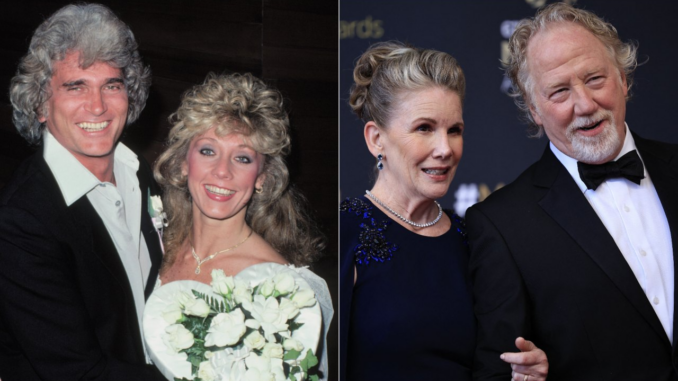
All in the Family is often hailed as one of the most influential television shows in history. Premiering in 1971, this groundbreaking sitcom introduced audiences to the Bunker family, navigating the complexities of American life through humor and candid discussions of social issues. In this article, we will explore the show’s impact on television, its memorable characters, and the themes it boldly addressed, solidifying its place in pop culture history.
The Premise of All in the Family
Setting the Stage
Set in a working-class neighborhood in Queens, All in the Family revolves around the lives of the Bunker family, particularly focusing on the outspoken and often controversial patriarch, Archie Bunker, played by the legendary Carroll O’Connor. The show used its setting to reflect the societal dynamics of the 1970s, tackling issues such as race, gender roles, and politics.
Main Characters
Archie Bunker: A staunchly conservative, blue-collar worker, Archie embodies many of the prejudices and fears of his time. His character serves as both a source of humor and a reflection of societal attitudes.
Edith Bunker: Archie’s loving but naïve wife, portrayed by Jean Stapleton, Edith often acts as the voice of reason in the household, providing a counterbalance to Archie’s harsh views.
Gloria Stivic: The couple’s daughter, played by Sally Struthers, represents the younger generation’s progressive ideals, often clashing with her father’s outdated beliefs.
Michael “Meathead” Stivic: Gloria’s husband, portrayed by Rob Reiner, is a liberal college student who frequently debates Archie on various social issues, highlighting the generational divide.
Cultural Impact of All in the Family
Pioneering Social Commentary
All in the Family was groundbreaking in its approach to social commentary. At a time when many television shows avoided controversial topics, this sitcom addressed issues like racism, feminism, and the Vietnam War head-on. By using humor, it opened up dialogues about these subjects in American households.
Challenging Stereotypes
The show challenged stereotypes and prejudices, often using Archie’s bigotry to highlight the absurdity of such views. This approach not only entertained but also educated viewers, encouraging them to reflect on their beliefs.
Influencing Future Sitcoms
The success of All in the Family paved the way for more socially conscious sitcoms, such as The Jeffersons, Maude, and Good Times. These shows continued to tackle pressing social issues and further expanded the boundaries of what television could address.
Memorable Episodes and Themes
The “Sammy’s Visit” Episode
One of the most iconic episodes features the legendary singer Sammy Davis Jr. visiting the Bunkers. The episode deftly handles themes of racism and acceptance, showcasing Archie’s discomfort while simultaneously illustrating the power of friendship and understanding.
“The Draft Dodger” Episode
This episode deals with the contentious topic of the Vietnam War and the draft. It features a powerful confrontation between Archie and his son-in-law Mike over the ethics of dodging the draft, reflecting the national debate of the time.
Feminism and Gender Roles
All in the Family also addressed feminism, particularly through Edith’s character. Episodes often depicted her struggle for independence and respect, challenging traditional gender roles and making a statement about women’s rights.
Behind the Scenes: The Creative Genius
Norman Lear: The Visionary Producer
The show’s creator, Norman Lear, played a crucial role in shaping the series. His commitment to addressing social issues through comedy became a hallmark of his work and influenced many subsequent shows.
Writing Team and Cast Dynamics
The writing team for All in the Family was diverse and talented, allowing for a range of voices and perspectives. The chemistry among the cast, particularly between Carroll O’Connor and Jean Stapleton, brought authenticity to their performances.
Awards and Recognition
Critical Acclaim
All in the Family received numerous awards during its run, including multiple Emmy Awards. It was praised not only for its writing and performances but also for its willingness to tackle difficult subjects.
Cultural Milestone
In 2001, the show was ranked as the fourth greatest television series of all time by TV Guide, highlighting its lasting impact on the medium.
The Show’s Legacy
Enduring Relevance
Even decades after its original airing, All in the Family remains relevant. Its themes of social justice, equality, and family dynamics continue to resonate with audiences today, making it a timeless classic.
Reboots and Revivals
The show’s influence has led to various revivals and adaptations, including 2019’s live special “Live in Front of a Studio Audience,” which showcased the enduring appeal of its characters and stories.
Conclusion
All in the Family stands as a monumental achievement in television history. Its fearless exploration of social issues through humor not only entertained but also educated and inspired viewers. As we look back at this iconic series, we recognize its power to challenge societal norms and provoke thoughtful discussions—qualities that continue to be essential in today’s media landscape.
